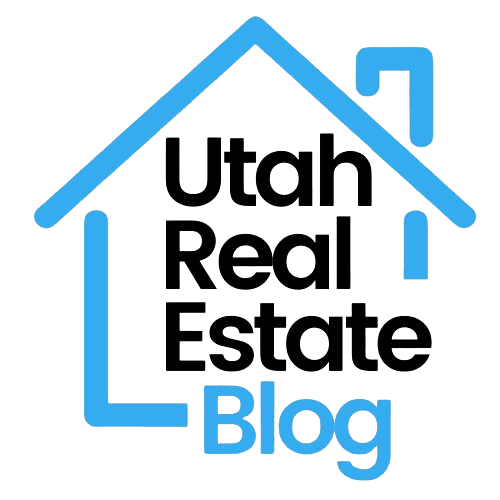What comes to your mind when you think about closing costs in Utah? Understanding what to expect financially during the home-buying process is essential for preparing yourself. Closing costs can seem overwhelming, but breaking them down can provide clarity and help you navigate your real estate transaction with confidence.

Understanding Closing Costs
Closing costs refer to the expenses that both buyers and sellers incur during the transfer of property ownership. In Utah, like in many other states, these costs can vary widely based on various factors such as the location, the sale price of the home, and local real estate practices. It’s imperative to factor these costs into your budget to avoid financial surprises.
What Do Closing Costs Typically Include?
Typically, closing costs in Utah include a range of fees that cover various services related to the transaction. Understanding each component helps in budgeting and ensures there are no hidden costs during the closing process.
- Loan Origination Fees: This fee is charged by the lender for processing the loan application.
- Appraisal Fee: Lenders often require an appraisal to ensure that the home is worth the loan amount.
- Title Insurance: Insurance to protect against potential disputes over property ownership can be a significant part of the closing costs.
- Escrow Fees: This fee is paid to the escrow company that manages the exchange of funds and documents during the closing process.
- Inspection Fees: Home inspections are often recommended and can add to the costs, providing peace of mind regarding the home’s condition.
Breakdown of Common Closing Costs
The following table outlines some common closing costs and their estimated ranges in Utah:
| Closing Cost | Estimated Range |
|---|---|
| Loan Origination Fees | $1,000 – $3,000 |
| Appraisal Fee | $300 – $600 |
| Title Search Fee | $200 – $400 |
| Title Insurance | $1,000 – $1,500 |
| Escrow Fees | $300 – $700 |
| Home Inspection | $300 – $500 |
| Prepaid Taxes and Insurance | Varies based on the property |
Ensure to seek a detailed estimate from your lender and real estate agent regarding anticipated closing costs specific to your transaction, as those numbers can fluctuate based on individual circumstances and locations.
Who Pays Closing Costs in Utah?
In a real estate transaction, the question of who pays for closing costs can vary based on negotiations between the buyer and seller. Traditionally, buyers are responsible for most of the closing costs, but sellers may agree to cover some expenses as an incentive.
Buyers’ Closing Costs
As a buyer in Utah, you should be prepared to pay for several common fees associated with the closing process. These typically include:
- Loan Fees: Any origination or processing fees charged by the lender.
- Title Insurance: Often, buyers will need to purchase title insurance for protection against potential claims.
- Property Taxes: You may be required to pay a portion of property taxes at closing.
The total amount for buyers can vary significantly but understanding these elements can help you plan accordingly.
Sellers’ Closing Costs
Sellers in Utah are also responsible for specific closing costs, which can include:
- Real Estate Commission: Typically between 5% to 6% of the sale price, split between the buyer’s and seller’s agents.
- Transfer Fees: Fees associated with transferring the property title.
- Prorated Property Taxes: Sellers may need to pay taxes for the time they owned the property during the tax year.
Understanding these costs can help sellers accurately price their properties and avoid surprises during the sales process.

Factors Influencing Closing Costs
Several factors can influence the amount you will pay in closing costs in Utah. Recognizing these can aid in estimating your total costs effectively.
Location
Different counties and cities in Utah have varying fees and regulations. For instance, urban areas may have different title insurance rates compared to rural areas. It is essential to consider where you are buying to get an accurate sense of the costs involved.
Loan Type
The type of loan you choose can also affect your closing costs. For example, conventional loans may have different origination fees compared to FHA or VA loans.
Home Price
Naturally, the higher the purchase price of the home, the higher various closing costs will be, especially those that are calculated as percentages, such as the real estate commission.
Estimates and How to Calculate Closing Costs
To better prepare, you will want to estimate your closing costs beforehand. An approximate rule of thumb is that closing costs typically range from 2% to 5% of the home’s purchase price.
Example Calculation
If you are purchasing a home priced at $400,000, you can anticipate your closing costs to be roughly between:
- 2% of $400,000 = $8,000
- 5% of $400,000 = $20,000
Thus, you should plan for anywhere from $8,000 to $20,000 for closing costs. This calculation helps in evaluating the overall affordability of a home in addition to the mortgage payments.

Preparing for Closing Costs
Preparation goes a long way in ensuring a smooth home-buying process. Here are steps you can take to manage your closing costs effectively.
Get a Good Faith Estimate (GFE)
Once you have applied for a loan, your lender is required to provide a Good Faith Estimate of the closing costs. Reviewing this document helps in understanding what costs you can expect and allow for negotiation with various service providers.
Shop Around for Services
You have the right to choose the service providers involved in your transaction, such as title companies and home inspectors. Shopping around can help you find competitive rates, which can significantly reduce your overall closing costs.
Consider Closing Cost Assistance Programs
Utah offers various assistance programs for first-time homebuyers and lower-income purchasers. Some programs may help offset closing costs through grants or secondary financing options. Researching these options can provide financial relief during the home-buying process.
Negotiating Closing Costs
Negotiation is a vital skill when finalizing a real estate transaction. Both buyers and sellers can negotiate the responsibilities for closing costs.
For Buyers
If you wish to reduce your out-of-pocket expenses, consider asking the seller to cover a portion of the closing costs. This can be appealing to sellers looking to close quickly, particularly if your purchase offer is lower than their asking price.
For Sellers
To attract more buyers, you may want to express willingness to cover certain closing costs in your listing. Understanding the local market conditions can help in making this decision more effectively.

Conclusion
Understanding closing costs in Utah is crucial for an effective and informed home-buying experience. Preparing financially for these costs, knowing what to expect, and taking proactive steps to manage and potentially negotiate these costs can significantly impact your overall satisfaction with the transaction.
By being informed and prepared, you can ensure that your journey to purchasing a home in Utah is as smooth and successful as possible. Remember to consult with your real estate agent and financial advisor to obtain the best information tailored to your specific situation. This effort will provide you with confidence and peace of mind as you embark on this important financial decision.

